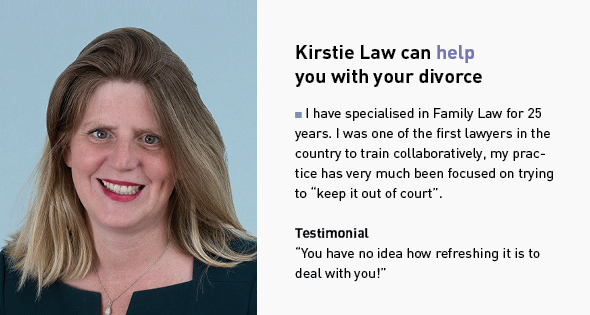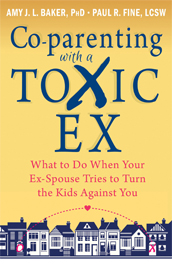Living With A New Partner – The Dos And Don’ts

- This blog contains affiliate links, which we may receive a commission for purchases. The decision is yours, whether or not you decide to buy.
A new relationship may be the catalyst for ending a marriage or, if it was not your choice to end the marriage, you may find that after a period of living on your own you want to, and are ready, to start a new relationship. It is important to think about how your new relationship will impact on your ex and your family and below are the answers to common questions and some tips from Kirstie Law – a Partner in the Family team at Thomson Snell & Passmore LLP.
Are the children affected by cohabitation?
Children will inevitably be affected by the introduction of a new significant adult into their lives. Whether this effect is positive or negative will depend on the circumstances. Your children are likely to pick up on negative feelings that the other parent has towards a new partner. They may also independently feel resentful if they regard the new partner as the reason for the breakdown of their parents’ marriage.
Even if not the reason for the breakdown, they may also perceive the new partner as being an obstacle to their parents getting back together if this is what they are hoping for. It is therefore sensible to introduce the new partner once your children have adjusted to your separation and ideally with the full support of the other parent.
Tips include:
- Do still spend time with your children without your new partner always being there, particularly if there are specific activities or hobbies that you have historically enjoyed together.
- Don’t expect your children to be affectionate towards your new partner, give them time to form their own relationship and let them decide when it is appropriate to, for example, hug and kiss hello and goodbye.
- Be open and honest with your children if you're asked many questions about your new relationship. It will cause resentment if, for example, you claim the relationship started later than it did and they subsequently realise that you have lied to them.
- Don’t put your children in a difficult and unexpected situation, for example if they come in to see you in the morning and find that you are sharing a bed with someone else, this can be embarrassing for all.
- Do plan fun activities that all will enjoy, particularly for the first few meetings to try and distract from any awkwardness.
- Don’t impose long periods of time together too soon. If, for example, you are going on holiday with your new partner, think about whether it would work for you and the children or your partner to go off for a period of time.
What is the impact of cohabitation on a financial settlement?
If you are planning to cohabit or remarry then this should be disclosed both on the Form E, (the disclosure form that is required when an application is made to the court to resolve financial matters and which it is also not unusual to complete if you are hoping to resolve matters amicably - e.g. through mediation or collaborative law,) and also on the summary Statement of Information form, which is filed with the court if you reach an agreement and ask the court to approve a consent order.
On the Form E you are required to disclose to the best of your knowledge, information and belief of your cohabitee’s financial position (capital and income).
The extent to which a cohabitee’s financial position is relevant to a financial settlement does depend. If it is a long marriage, where you and your spouse have similar earning capacities and are dividing the capital equally with a clean break settlement, then the fact that one or other of you is cohabiting may not impact the financial settlement at all.
If however, one spouse is claiming maintenance from the other, then an intention to cohabit is relevant because you would expect the person with whom you are cohabiting to make a contribution towards your joint outgoings which may mean you can afford to pay more or receive less maintenance.
The level of contribution expected will depend on the cohabitee’s income position. In practice, it is not unusual where a former spouse is living with someone on a reasonable income who can afford to pay towards the joint outgoings for this to mean the spousal maintenance is just paid at a nominal 5p a year level to keep the claim open in case the relationship ends, but so that an ex-spouse is not effectively supporting a new partner.
People often ask whether there is a legal definition of cohabitation and the answer is no. It is not the case that spending a certain number of nights a week under the same roof will lead to a finding that there is cohabitation. Courts do sometimes apply the ‘but for’ test.
This is best explained as “were it not for the fact that the ex-spouse is receiving maintenance, would they be cohabitating” and if the answer to that is yes, the court may well make the decision to not order substantive maintenance (more than 5p per year) or, if it is an application to vary maintenance, to reduce it to a nominal amount.
If you are the spouse who is, or is likely to be, ordered to pay substantive maintenance to an ex-spouse, then again the position of your cohabitee is relevant in the sense that he or she should be contributing towards your joint outgoings.
The court would never expect a new partner to effectively pay maintenance to an ex-spouse, but you cannot, for example, say that your income is needed to pay all the household outgoings which means you cannot afford to pay maintenance, whilst your new partner is retaining their income, or spending it on luxury items, such as fast cars and holidays.
Top tips include:
- Do be open with your ex if you have formed a new relationship. If they find out from someone else, or through their own enquiries, they are more likely to be suspicious and think that you have something to hide.
- Don’t introduce the children to a new partner without making your ex aware of the position. This not only leads to resentment, but can also be confusing and unsettling for the children.
- Do be honest on the Form E about your partner’s financial position so far as you are aware. The duty of disclosure is the same as with regard to your own financial position and when people say they have no idea as to what their new partner’s assets and income position is, this may lead to the suspicion that they are wealthier than they actually are!
- Don’t tell your new partner that your ex is after his or her income as the reality is that is not what happens in divorce cases. It is simply that their financial position is relevant in assessing what you can afford to pay or receive.
Other common questions include:
If I cohabit, does this enable the other party to petition for divorce?
Until April 2022 there is only one ground for divorce which is that the marriage has broken down irretrievably. “Irretrievable breakdown” is evidenced by proving one of five facts and if you have not lived separate and apart for over two years, the only facts that can apply are adultery and behaviour.
If you are living with someone else this does not in itself prove adultery. The strict legal definition of adultery is sexual intercourse between a man and woman. It can therefore be hard to prove without video camera evidence or a child, but even the presence of a child without DNA evidence may not be conclusive.
As such, if you are living with someone else, it is more likely that your ex will petition on the basis of behaviour and cite the fact that you have deprived them of love and affection and are choosing to live with a new partner as a reason.
If your marriage has broken down to the point that you are living with someone else, then it would not normally make sense to delay the divorce so my advice would be to avoid defended proceedings and agree some behaviour examples that are acceptable to you, or to agree that you will admit adultery on the basis that your new partner is not named, so not a party to the divorce proceedings.
Being the respondent to a behaviour or adultery petition does not in itself impact on the financial settlement, although the costs of the actual divorce may be claimed.
If you and your ex-spouse agree to deal with the divorce paperwork yourself (rather than paying solicitors to do so) using the online Government portal (https://www.gov.uk/apply-for-divorce) the only cost will be a £550 court fee, which could be paid from a joint account or you could agree to
Is it better to wait to live with a new partner until the divorce is finalized?
As explained above, the fact that you are intending to cohabit is also relevant, so as such it will not impact on the financial settlement as to whether you are already or are intending to divorce.
If however your ex has taken the issue of the new relationship badly, then it may be better to wait a period of time before setting up home with someone new, particularly if the children are struggling to come to terms with the end of their parents’ marriage.
Why should my ex object if I cohabit after the divorce?
Statistically you are both likely to cohabit following your divorce. With human nature being the way it is, it can cause increased feelings of resentment, jealousy, and even self-loathing if your ex forms a new stable relationship before you do.
It is therefore sensible to be sympathetic if your ex is struggling with your new relationship and do think about how you would feel in his or her position. Think about how you would feel seeing your children spending time with your ex and a new partner.
It often helps to agree ground rules, including how long a new relationship needs to last before the children are introduced, whether the children will ever go into the bedroom and find mum or dad in bed with someone else, and with young children whether a new partner will be excluded from parental roles like bath-time activities and changing clothes.
There are no rights or wrongs to these questions, but if you and your ex can agree and be consistent, it may avoid resentment and burdening your children with being caught in the middle of issues unnecessarily.
Finally, if you are struggling as a result of your own or your ex’s cohabitation it would be worth involving a mediator, relationship counsellor or family therapist early on to help the two of you to navigate, in particular, the co-parenting issues that arise from cohabitation.
Written by Kirstie Law Solicitor, Collaborative Lawyer and Mediator at Thomson Snell & Passmore www.ts-p.co.uk
PHOTO CREDIT: GARY BARNES FROM PEXELS
You may also like
Books
Buy now from Amazon
Podcast
If you’re looking for some straight-up, positive advice on topics that affect your daily life, then check out The Sue Atkins Parenting Show. Each week Sue bare will discuss every possible aspect of your parenting challenges, from weaning to whining, boundaries round technology to stroppy teens. You’ll get practical tips, techniques and advice that really work- and it’s all totally free.
Articles
- 5 Ways To Parent With A Narcissist
- How To Be Great Parents Through Separation And Beyond
- Divorce From A Child's Perspective
Videos
Practical advice and tips from professionals on what to do with issues and challenges around divorce from parenting to finance.
Events
Practical tips & advice designed to help people going through divorce, whether online or in person.
Useful links
Here's a selection of organistaioins from parenting to finance to help you with your divorce.
Legal professionals
Related Posts
-

Most Common Age for Divorce in the UK and the Key Reasons Behind It
-

Reclaiming Joy After Divorce: Small Daily Rituals That Make a Big Difference
-

Navigating Social Media During Separation: Essential Dos and Don’ts in the UK
-

Is Silence Destroying Your Marriage? How Poor Communication Leads to Divorce (And What You Can Do About It)
-

When Is the Best Time to Start Family Mediation in the UK? | Guide for Separating Couples



.jpg)

.jpg)



.jpg)

